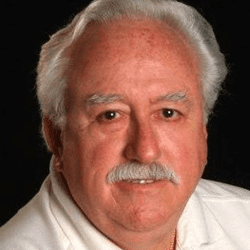Over twenty years ago now, two management scientists wrote in the same issue of the Harvard Business Review some words of wisdom that still have not been fully put into practice by many CEOs.
At the time (1989) Theodore (Ted) Levitt was the editor, and in the November-December issue he wrote an editorial on innovation, a “hot” current topic. Some of what he wrote still rings true today, and probably will forever.
He said “there is nothing you can do about the past, but you can do something about the future and what might happen.”
“Everybody should try to develop the ability to interpret the pace, direction, meaning, and significance of what’s happening. And, as long as people are reasonably free to follow their own inclinations, there will be innovation, because they will find way to offer improvements of what is already available, and ways to buy faster, cheaper, and more congenially,”
“That is why one of the chief duties of managers is to encourage their people and their organizations to think imaginatively and act aggressively – even to smash the constraints of the required routine and to circumvent the systems over which they preside.”
Levitt concluded the editorial with now famous words: “nothing is more wasteful than doing with great efficiency that which should not be done.”
In the same issue, Bruce Henderson, the founder and Chairman of the Boston Consulting Group, wrote his well known tome on the “Origin of Strategy,” wherein he quoted Gause’s Principle of Competitive Exclusion: no two species can coexist that make their living in the same identical way.
Henderson reiterated the principle in his own words. “Competitors that make their living in the same way cannot coexist – no more in business than in nature. Each must be different enough to have a unique advantage.”
“What differentiates competitors in business is the customers perception of the products and its suppliers. Indeed, image is often the only basis of comparison between alternatives.”
And he captured the concept of strategy eloquently by stating “strategy is the deliberate search for a plan of action that will develop a business’s competitive advantage and compound it.” He concluded that unless a business has a unique advantage over its rivals, it has no reason to exist.”
His contribution to management theory is his lasting statement “strategy is the management of natural competition. That is how it compresses time.”
If you reflect on these insights by these two management thinkers from over 20 years ago – what’s new? Aren’t we still talking about:
Every CEO should be developing a strategy to inculcate innovation in the fabric of their company so that they have a sustainable unique value proposition which gives them a competitive advantage by creating an emotional bond with their customers.
You may not remember Levitt and Henderson, but their views about winning are fundamental even today.

Chief Executive Group exists to improve the performance of U.S. CEOs, senior executives and public-company directors, helping you grow your companies, build your communities and strengthen society. Learn more at chiefexecutivegroup.com.
0

1:00 - 5:00 pm
Over 70% of Executives Surveyed Agree: Many Strategic Planning Efforts Lack Systematic Approach Tips for Enhancing Your Strategic Planning Process
Executives expressed frustration with their current strategic planning process. Issues include:
Steve Rutan and Denise Harrison have put together an afternoon workshop that will provide the tools you need to address these concerns. They have worked with hundreds of executives to develop a systematic approach that will enable your team to make better decisions during strategic planning. Steve and Denise will walk you through exercises for prioritizing your lists and steps that will reset and reinvigorate your process. This will be a hands-on workshop that will enable you to think about your business as you use the tools that are being presented. If you are ready for a Strategic Planning tune-up, select this workshop in your registration form. The additional fee of $695 will be added to your total.

2:00 - 5:00 pm
Female leaders face the same issues all leaders do, but they often face additional challenges too. In this peer session, we will facilitate a discussion of best practices and how to overcome common barriers to help women leaders be more effective within and outside their organizations.
Limited space available.

10:30 - 5:00 pm
General’s Retreat at Hermitage Golf Course
Sponsored by UBS
General’s Retreat, built in 1986 with architect Gary Roger Baird, has been voted the “Best Golf Course in Nashville” and is a “must play” when visiting the Nashville, Tennessee area. With the beautiful setting along the Cumberland River, golfers of all capabilities will thoroughly enjoy the golf, scenery and hospitality.
The golf outing fee includes transportation to and from the hotel, greens/cart fees, use of practice facilities, and boxed lunch. The bus will leave the hotel at 10:30 am for a noon shotgun start and return to the hotel after the cocktail reception following the completion of the round.